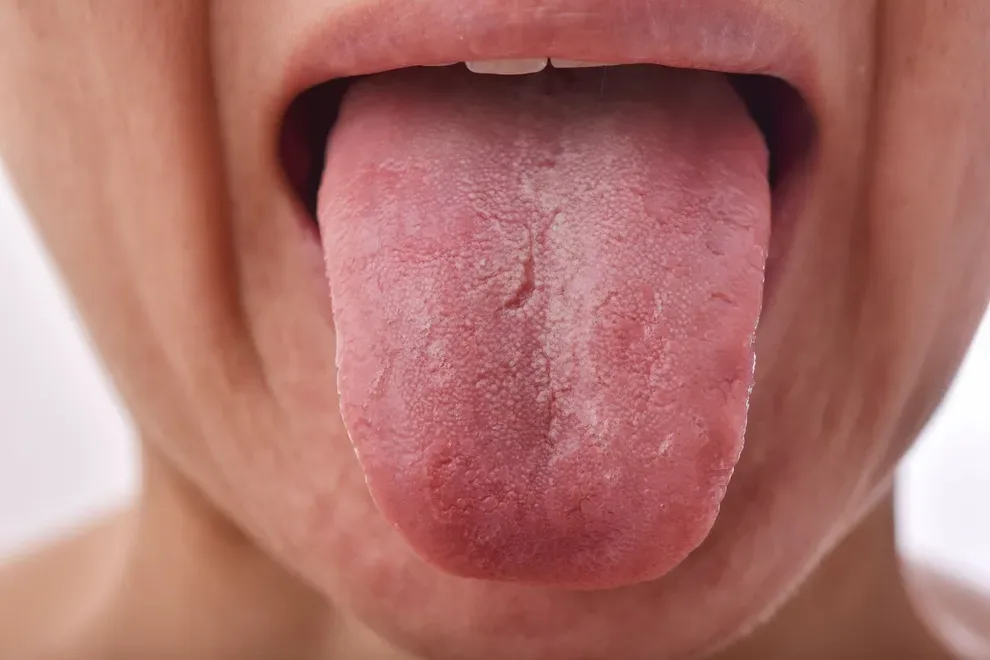How Long Does Oral Thrush Last Without Treatment?

Table of Contents
- What Is Oral Thrush?
- Treatment
- Who Is At Risk?
- How Long Can It Last?
- When to See a Doctor
A healthy individual has a relative number of microorganisms including fungi in their mouth. These organisms, known as normal flora, rarely cause disease. But in cases of reduced immunity, microbes may multiply and present with different symptoms. Oral thrush is one of the conditions that stems from fungal overgrowth in the oral cavity.
What Is Oral Thrush?
Medically referred to as oral candidiasis, oral thrush is an infection of the mouth caused by a group of fungi known as Candida. The hallmark of this type of candidiasis is white patches in the oral cavity.
Other symptoms of oral candidiasis include:
Unpleasant taste, especially after waking up or total loss of taste
Increased redness of the throat and the entire oral mucosa (mouth walls)
Cracking and pain at the corners of the mouth
Difficulty in chewing and swallowing when the infection involves the throat
You may experience all the mentioned symptoms of oral thrush or just a few of them. The manifestation of the infection varies from one individual to another depending on the immune status and personal oral hygiene.
Brushing can dislodge the mouth plaques and cause mild bleeding. Beyond that, oral thrush is not a serious infection.
Who is at risk for thrush?
While everyone has Candida fungi in their mouths, not everyone develops oral thrush. Experts say people typically get the problem as a result of another medical condition or treatment.
Common causes of oral thrush include the following:
Cancer treatments, such as chemotherapy and radiation
Diabetes
HIV/AIDS
Antibiotic use
People who wear dentures are also at risk of developing thrush, especially if they don’t remove their devices regularly and disinfect them properly. If you wear dentures, ask your dentist for advice on how to keep them clean and safe.
How long can thrush last?
The plaques and fungus in your mouth can be unpleasant, and in some cases, thrush can lead to serious health problems. If you don’t address the cause of thrush and start some kind of treatment, you could live with these problems for a long time.
According to the Institute for Quality and Efficiency in Health Care, untreated oral thrush can last for months or even years. Medications like clotrimazole can clear up the problem within about seven days, but doctors typically treat it for about two weeks to ensure it doesn’t come back.
How Do You Treat Oral Thrush?
Cases of thrush will require medical help. Several treatment options are available, and your doctor can help you determine which ones are right for you.
Most people use a topical antifungal therapy (like a mouthwash) for oral thrush. However, if the issue comes back or doesn’t get better, your doctor may use a systemic treatment (like a pill) too.
This table can help you understand what type of therapy your doctor might use and how long it could last:
Medication Name | Who Uses This Therapy? | How Long Does it Last? |
Clotrimazole rinses | People with mild thrush or the first episode of thrush | 2 weeks |
Nystatin rinses | People with mild thrush or the first episode of thrush | 2 weeks |
Fluconazole tablets | People with moderate-to-severe thrush | 8-15 days |
Itraconazole suspension | People with thrush that won’t go away | 28 days |
Posaconazole suspension | People with thrush that won’t go away | 28 days |
Voriconazole tablets | People with thrush that won’t go away | 28 days |
While the antifungal drugs for managing oral thrush are relatively safe, you may experience limited side effects that include vomiting, nausea, diarrhea, or bloating. Sometimes oral thrush may be caused by prolonged use of particular prescription drugs such as corticosteroids. In such cases, drug withdrawal or dose reduction may be necessary for the management of thrush.
When diagnosing thrush, a visual exam is usually all that is needed; in addition to checking in your mouth, the doctor will ask you about your medical history.
What happens if you don’t treat oral thrush?
Left untreated, however, candidiasis of the mouth can flare up into a serious systemic infection that involves several organs in immunocompromised subjects. The heart and lungs are the most likely organs to be affected.
Immunocompromised individuals have poor immunity with decreased ability to fight diseases. The majority suffer from other co-morbidities such as HIV, diabetes or cancer.
Home remedies for thrush
At-home treatments can make your thrush therapies more effective, and in some cases, they could keep the problem from coming back.
Active-culture yogurt, for instance, acts as a biological way of clearing the yeast from the mouth. The yogurt is rich in probiotic bacteria, Lactobacilli, which compete with the yeast cells for nutrients leading to a decreased growth of the fungi. The use of active-culture yogurt in some age groups including the pediatric category requires the input of a qualified health professional.
If you experience itching or burning sensations associated with oral thrush, cold beverages and drinks will give you temporary relief. Smoothies, crushed-ice beverages and chilled soups are among the easy-to-swallow remedies you can try.
Warm saltwater is another non-medical way of dealing with thrush. Dissolve a half teaspoonful of salt in a cup of warm water and gargle to relieve throat soreness.
Maintaining good oral hygiene is the ultimate home remedy for thrush. Brushing your teeth, tongue, and gums at least twice daily using a soft toothbrush helps to keep your mouth clean. After every meal, rinse your mouth with water to wash away food particles that would otherwise promote the growth of Candida.
If you use dentures, keep them clean by disinfecting them regularly. You will want to avoid alcohol-containing mouthwashes that are likely to worsen the burning sensation of thrush.
Can you give thrush to someone else?
Most people have small amounts of fungus inside their mouths, and the immune system often keeps colony sizes in check. People who have thrush have some type of weakened immune system that allows colonies to grow. People who get the condition don’t need someone to give them that fungus. They already have the ingredients needed for thrush.
While adults rarely pass thrush between one another, a mother can pass the problem to her baby. Moms should be careful to treat thrush symptoms, so they don’t pass the problem to a child.
Keeping the home clean could be helpful too. Follow these steps if anyone in the household has thrush or is at risk for the condition due to a compromised immune system:
Wash your hands regularly with warm, soapy water.
Clean utensils with warm, soapy water. Don’t share tools with anyone else.
Disinfect surfaces as often as you can.
When should you see a doctor?
If you think you have oral thrush, see your doctor. The doctor will examine your mouth to diagnose the infection but may also perform blood tests to check for other medical conditions often associated with oral thrush.
Oral thrush is a rare infection in the general healthy population but occurs in up to a third of patients with advanced AIDS disease.
